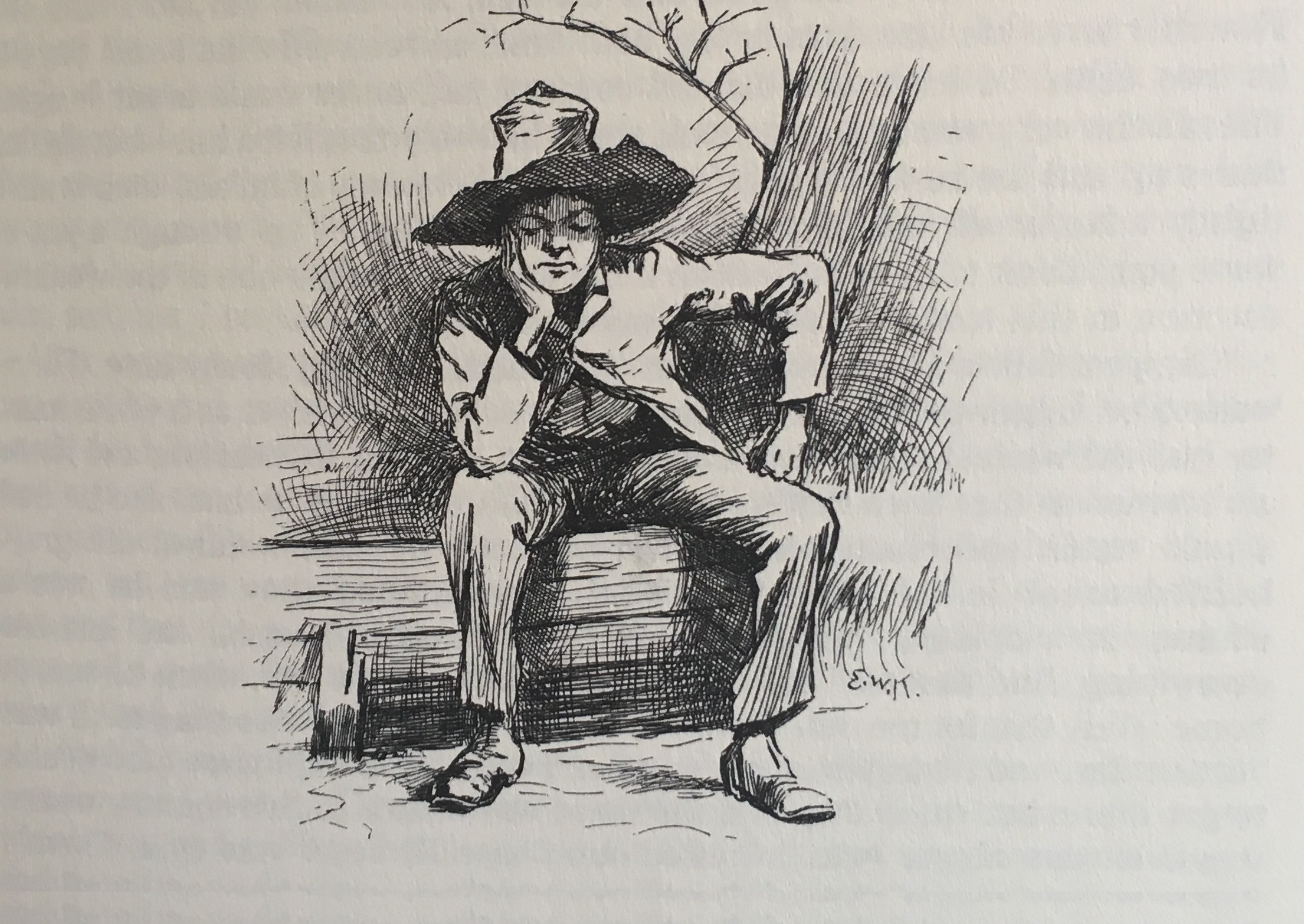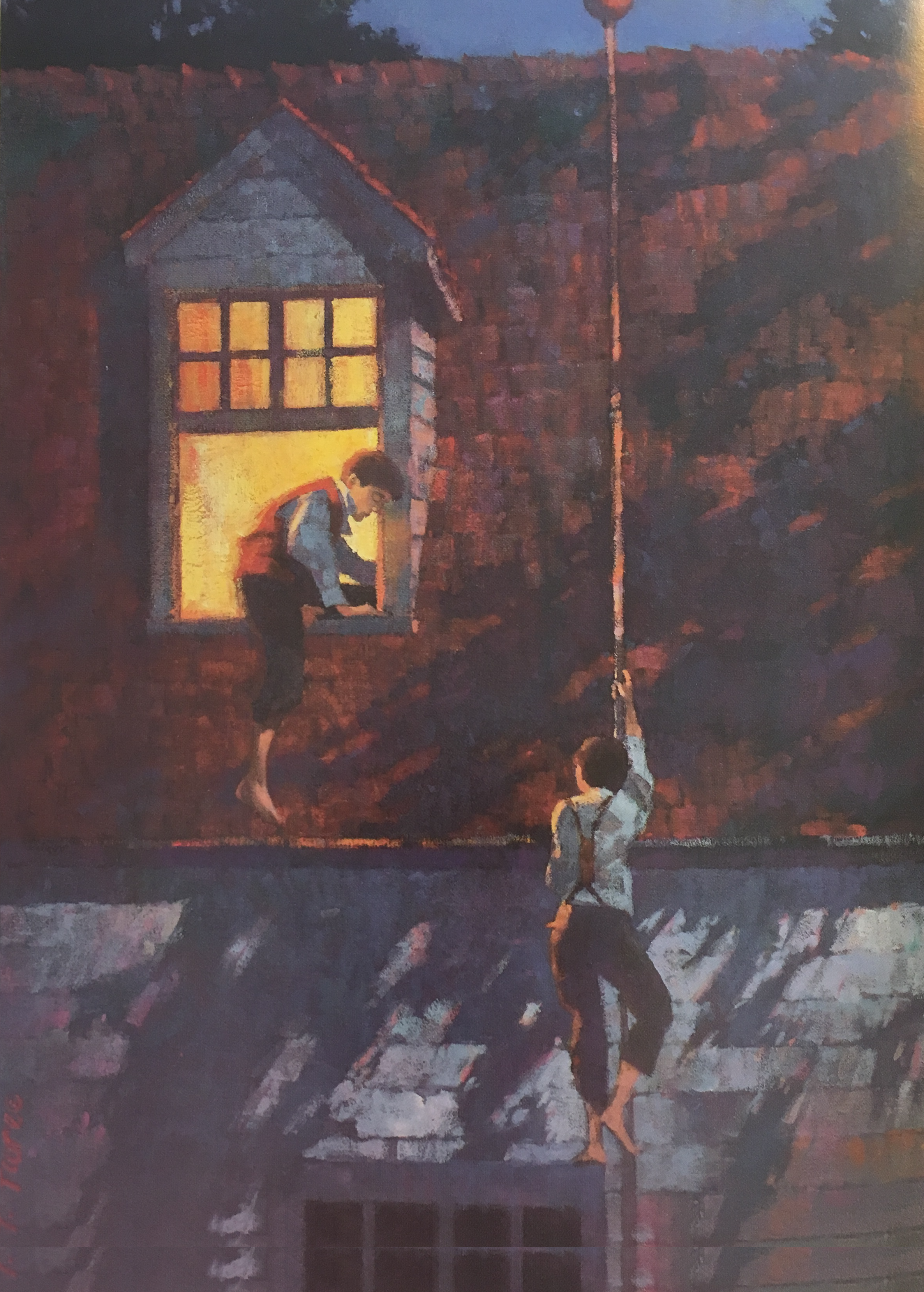Are you committed to The 37-Year Job?
Today, I want to share with you one of my favorite parts from Mark Twain’s The Adventures of Huckleberry Finn, as well as the insights I have gleaned from these passage. I am using the 1992 edition published by Children’s Classics, edited by Claire Booss and with illustrations by Peter Fiore and Edward W. Kemble.
As you listen, I want you to ask yourself the following question:
Are you making your work more complicated than you need to?
Without further ado, I hope you enjoy Twain’s brilliant portraits of Tom Sawyer and Huck Finn as they work out a plan to free the runaway slave, Jim, who has been caught and is currently being held prisoner in a shed by Tom’s uncle, Silas.
Chapter XXXV
It would be most an hour, yet, till breakfast, so we left, and struck down into the woods; because Tom said we got to have some light to see how to dig by, and a lantern makes too much, and might get us into trouble; what we must have was a lot of them rotten chunks that’s called fox-fire and just makes a soft kind of glow when you lay them in a dark place. We fetched an armful and hid it in the weeds, and set down to rest, and Tom says, kind of dissatisfied:
“Blame it, this whole thing is just as easy and awkward as it can be. And so it makes it so rotten difficult to get up a difficult plan…Why, drat it, Huck, it’s the stupidest arrangement I ever see. You got to invent all the difficulties. Well, we can’t help it; we got to do the best we can with the materials we’ve got. Anyhow, there’s one thing—there’s more honor in getting him out through a lot of difficulties and dangers, where there warn’t one of them furnished to you by the people who it was their duty to furnish them, and you had to contrive them all out of your own head. Now look at just that one thing of the lantern. When you come down to the cold facts, we simply got to let on that a lantern’s resky. Why, we could work with a torchlight procession if we wanted to, I believe. Now, whilst I think of it, we got to hunt up something to make a saw out of the first chance we get.”
“What do we want of a saw?”
“Why, you just said a body could lift up the bedstead and slip the chain off.”
“Well, if that ain’t just like you, Huck Finn. You can get up the infant-schooliest ways of going at a thing. Why, hain’t you ever read any books at all?—Baron Trenck, nor Casanova, nor Benvenuto Chelleeny, nor Henri IV., nor none of them heroes? Who ever heard of getting a prisoner loose in such an old-maidy way as that? No; the way all the best authorities does is to saw the bed-leg in two, and leave it just so, and swallow the sawdust, so it can’t be found, and put some dirt and grease around the sawed place so the very keenest seneskal can’t see no sign of it’s being sawed, and thinks the bed-leg is perfectly sound. Then, the night you’re ready, fetch the leg a kick, down she goes; slip off your chain, and there you are. Nothing to do but hitch your rope ladder to the battlements, shin down it, break your leg in the moat—because a rope ladder is nineteen foot too short, you know—and there’s your horses and your trusty vassles, and they scoop you up and fling you across a saddle, and away you go to your native Langudoc, or Navarre, or wherever it is. It’s gaudy, Huck. I wish there was a moat to this cabin. If we get time, the night of the escape, we’ll dig one…”
Later on, they reconvene to go over the plan:
” …”Everything’s all right now except tools; and that’s easy fixed.”
“Tools?” I says.
“Yes.”
“Tools for what?”
“Why, to dig with. We ain’t a-going to gnaw him out, are we?”
“Ain’t them old crippled picks and things in there good enough to dig [Jim] out with?” I says.
He turns on me, looking pitying enough to make a body cry, and says:
“Huck Finn, did you ever hear of a prisoner having picks and shovels, and all the modern conveniences in his wardrobe to dig himself out with? Now I want to ask you—if you got any reasonableness in you at all—what kind of a show would that give him to be a hero? Why, they might as well lend him the key and done with it. Picks and shovels—why, they wouldn’t furnish ’em to a king.”
“Well, then,” I says, “if we don’t want the picks and shovels, what do we want?”
“A couple of case-knives.”
“To dig the foundations out from under that cabin with?”
“Yes.”
“Confound it, it’s foolish, Tom.”
“It don’t make no difference how foolish it is, it’s the right way—and it’s the regular way. And there ain’t no other way, that ever I heard of, and I’ve read all the books that gives any information about these things. They always dig out with a case-knife—and not through dirt, mind you; generly it’s through solid rock. And it takes them weeks and weeks and weeks, and for ever and ever. Why, look at one of them prisoners in the bottom dungeon of the Castle Deef, in the harbor of Marseilles, that dug himself out that way; how long was he at it, you reckon?”
“I don’t know.”
“Well, guess.”
“I don’t know. A month and a half.”
“Thirty-seven year—and he come out in China. That’s the kind. I wish the bottom of this fortress was solid rock…”
Twain, Mark. The Adventures of Huckleberry Finn. Children’s Classics: New York and Avenel, New Jersey, 1992. pp 199 – 206.
Food for Thought:
- Are you addicted to intensity? Do you need to feel like you are living a big life?
- Are there ways that you could be making you life easier, yet you resist because you believe in hard work?
- Do you define yourself as a ‘hard worker’?
- Are you suspicious of ease? Do you fear that an experience is cheapened if it’s too easy?
- What is at risk or you? Are you making up a story about what it would mean about you if you allowed more ease?



No responses yet